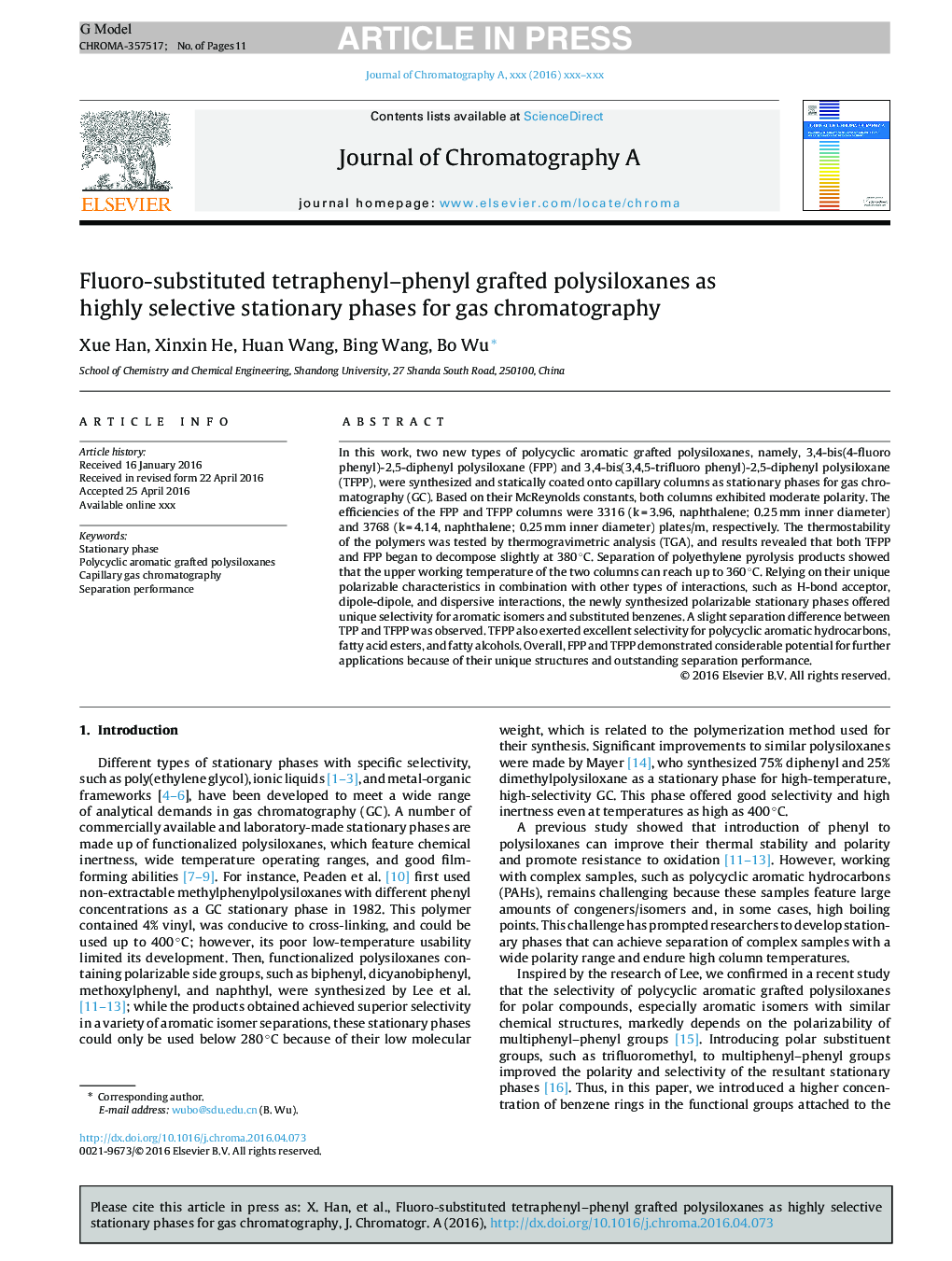| Article ID | Journal | Published Year | Pages | File Type |
|---|---|---|---|---|
| 7610067 | Journal of Chromatography A | 2016 | 11 Pages |
Abstract
In this work, two new types of polycyclic aromatic grafted polysiloxanes, namely, 3,4-bis(4-fluoro phenyl)-2,5-diphenyl polysiloxane (FPP) and 3,4-bis(3,4,5-trifluoro phenyl)-2,5-diphenyl polysiloxane (TFPP), were synthesized and statically coated onto capillary columns as stationary phases for gas chromatography (GC). Based on their McReynolds constants, both columns exhibited moderate polarity. The efficiencies of the FPP and TFPP columns were 3316 (k = 3.96, naphthalene; 0.25 mm inner diameter) and 3768 (k = 4.14, naphthalene; 0.25 mm inner diameter) plates/m, respectively. The thermostability of the polymers was tested by thermogravimetric analysis (TGA), and results revealed that both TFPP and FPP began to decompose slightly at 380 °C. Separation of polyethylene pyrolysis products showed that the upper working temperature of the two columns can reach up to 360 °C. Relying on their unique polarizable characteristics in combination with other types of interactions, such as H-bond acceptor, dipole-dipole, and dispersive interactions, the newly synthesized polarizable stationary phases offered unique selectivity for aromatic isomers and substituted benzenes. A slight separation difference between TPP and TFPP was observed. TFPP also exerted excellent selectivity for polycyclic aromatic hydrocarbons, fatty acid esters, and fatty alcohols. Overall, FPP and TFPP demonstrated considerable potential for further applications because of their unique structures and outstanding separation performance.
Related Topics
Physical Sciences and Engineering
Chemistry
Analytical Chemistry
Authors
Xue Han, Xinxin He, Huan Wang, Bing Wang, Bo Wu,
